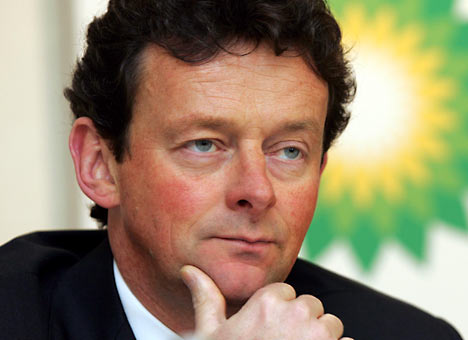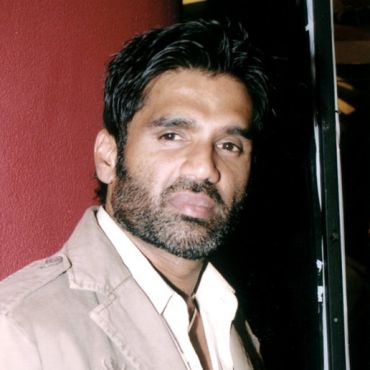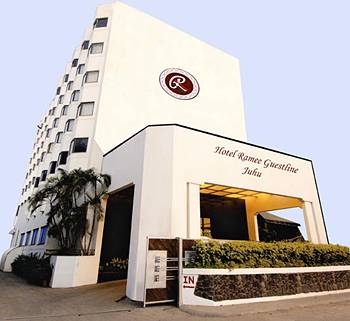Man in the mirror
Mood:
 cheeky
Now Playing: Devil's Advocate
Topic: INDIAN HYPOCRISY
cheeky
Now Playing: Devil's Advocate
Topic: INDIAN HYPOCRISY
So the three villains this month were Narendra Modi, Warren Anderson and Tony Hayward, and I don’t know if it is in that order. Warren Anderson, former CEO of Union Carbide, is all of 89 years old, retired in his luxury villa. Wonder why it took so long for the judges to come to this conclusion that Warren is actually not culpable. Compare this with the Ajmal Kasab’s case. If the judiciary wants, it can get the verdict out in just a year. If not, the case can be dragged on and on, and don’t be surprised with the verdicts being handed down to the great grand children in their 40s who couldn’t help but snigger at the idiocy of the Indian judiciary.

I remember vividly when the Bhopal gas tragedy took place there were several of my friends whose relations were affected or had a close shave at Bhopal. I was in collage then and as any college-going kid full of idealism, we took to the streets. Warren Anderson had to be hanged, we said.
During a nature trail with about seven close friends in the early 90s to Bhimashankar hills, we ran out of batteries for our Sony Walkman(s) and cameras. We could spot a small grocery vendor at a village at the foot of Bhimashankar hills, whose only protection against the rain and sun, was an awning swaying in the heavy breeze. The shop owner could offer Eveready batteries, and none else. We needed all the stock he had of about 12 batteries. But after almost an hour of heckling with my friends over the chances of our equipment getting damaged because of the abysmal storage conditions at the shop, we did not buy any battery from him. But none of my friends ever came to know that my real concern was not the storage condition of the batteries at the shop but my antipathy towards Union Carbide.
I have tried not buying Eveready batteries ever since the tragedy took place as it was manufactured by Union Carbide. I would prefer Nippo over Eveready. Today the world has changed, and Eveready belongs to a different company – and even after Union Carbide sold its battery products division to Ralston Purina Company for $1.4-billion in 1986 I have never bought that brand of batteries since.
Just last week when I was in Kerala, an incident took place which left me shaken if not stirred. I was travelling from Angamali to Thrissur by a State Transport bus, much out of choice – it is always good to be with local people in a bus than engage a private vehicle.
Near Chalakudi, the old rickety bus went over a pothole at high speed, the effect of which was enough to send the passengers at the rear end up the air. One of the passengers in the last row who was holding himself steady by keeping his feet under a wooden box, went up in the air along with the rest only to scream in pain when his left foot held under the box, broke. There was no bleeding but the passenger was writhing in pain. It took some effort to convince the bus conductor and the driver that the situation was grave enough for them to seek medical help for the passenger. To cut the long story short, after about half hour at Chalakudi, the victim’s relations turned up to take him to hospital for treatment. Neither the state transport company nor the driver was held culpable for the pain, agony and the expenses of the passenger. What is noticeable is that Kerala is a state so progressive that Nobel laureate Amartya Sen considers it to be a model state.
If Warren Anderson is at the twilight zone of his life trying to figure out everyday if he would be alive till the evening, Indians are past master in the game of procrastination. Incidentally, it is even more surprising to see the international reaction on the BP oil spill off the Mexico coast, where the perfect scapegoat is the CEO Tony Hayward.
Let me give you another analogy, I hold a savings account in a leading British bank, which took 21 days to transfer some ten thousand rupees into the account. It was promised to me that the transfer will take place by the end of day one. When it didn’t happen over the next few days I lodged a formal complaint, and then the bureaucratic juggernaut started to roll. There were at least 8 calls to and fro made to ascertain the status of the transfer of funds. By the end of 20 days I lost my cool and when the conversation become a little uncivilised the transfer was made.

I remember Sucheta Dalal writing in her column in the Indian Express called Different Strokes on how banks and financial institutions involved in stock market dealings use money in transit to dabble in the markets. Today, the settlement period in Indian stock markets has been reduced to T+2, which is by any measure, a world standard. But when it was a month or even a week in the late 90s, the institutions would use the funds from the sale of your stocks to trade in the market and make money on the side.
Now I don’t know if there is a Harshad Mehta lurking in the markets using banks funds to play the stock markets, but the 21-day period taken to transfer funds is unacceptable. And by the way, did anyone lose their job for the muddle in the fund transfer? Then why is that even Barack Obama finds the idea of sacking Tony Hayward a sexy idea to raise his stocks amongst his voters?
Let’s look at what has happened in the Gulf of Mexico? There has been an oil spill which is unparalleled in the history of mankind. So, everyone is expected to shake their head in indignation and seek justice for the whole lot of living beings in the ocean which have lost their lives or are maimed beyond recognition. Is the indignation a matter of convenience for all of us, just as it is for the US President? The oil and gas industry is the biggest culprit of carbon emission, and global warming will lead to the extinction of mankind sooner than later. Is the oil spill in Mexico a bigger environmental issue than global warming?
When the world discovered the mad cow or the bird flu disease, what did we do – give up eating that stuff. So when we are so riled up over the oil spill why don’t we simply decide to give up oil and gas consumption?! No one is even suggesting that. Instead we find a perfect fall guy in Tony Hayward, as if by his sacking the evil of oil leakage will be fixed.
If it is about his culpability, it is too plaintive to think that his sacking will dissuade others from being lackadaisical in taking strong measures to prevent such misadventures in the future. Leakages from an oil rig are only as common as a news channel getting its facts wrong while broadcasting news. How many of us have got away by issuing corrigendum. Once the Time magazine, while writing about our former prime minister Atal Bihari Vajpayee, got every bit of facts wrong – his age, his place of birth, his medical condition, his treatment, et al. It was a classic case of what journalism ought not to be. Did any editor in Time lose his job for that report? Remember, the Mahatma had said quite poignantly, “when you point your forefinger at some one realize that the other three fingers are pointed towards you”.
And the third case is the most ridiculous of all of them – the Narendra Modi muddle. Nitish Kumar in a public meeting held Modi’s hand up in the air in a show of camaraderie to lustily cheering crowd. Now when Modi has issued ads to prove his secular credential (whatever that means) Kumarsaab is breathing fire and brimstone. Secularism is something I could never understand, just as the term ‘terrorism’. But my point here is plain and simple. If a person is caught by the police, do his past connections, his Facebook friends and phone book records also not become suspect?
On what ground is Nitish Kumar making such a huge noise. If he was so against Narendrabhai then why did he team up with him earlier? I suspect there is something more to it than meets the eye. The two together must have decided together to create a public ruckus over the issue only to put the Congress in its place. If you see the two have everything to gain and nothing to lose from the public wrangling. So the best thing for all of us again is to go and look at ourselves in the mirror. The message is clear and loud.
************
Posted by Anil Nair
at 3:58 PM
Updated: Monday, 14 June 2010 4:17 PM





